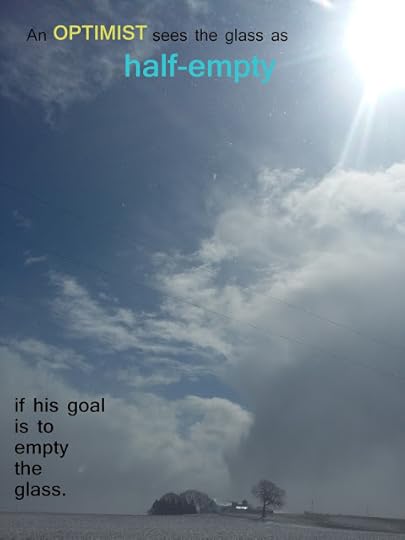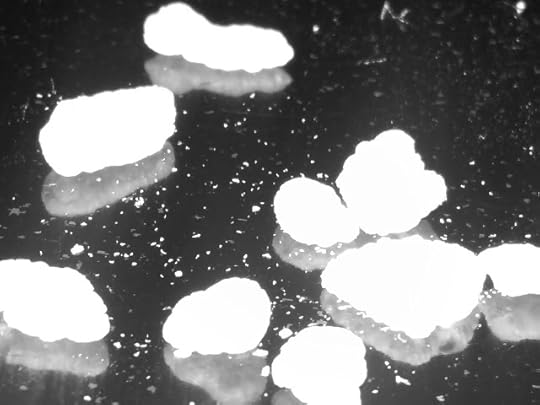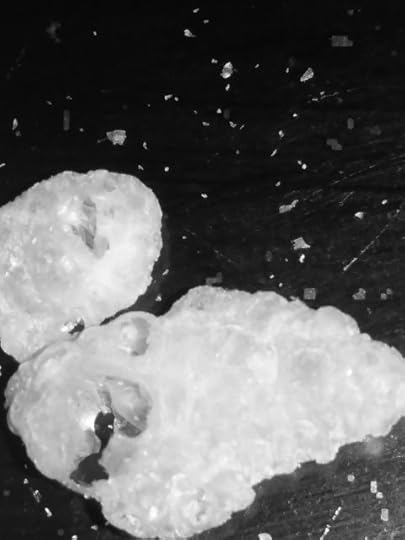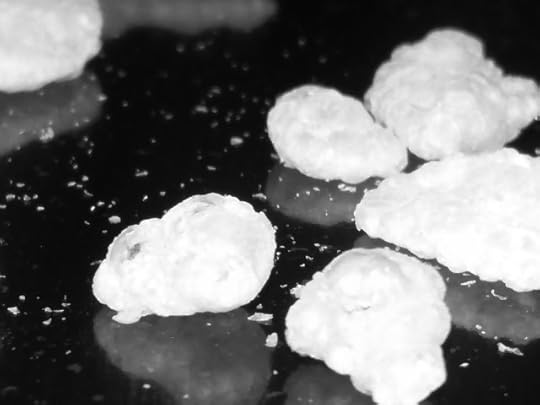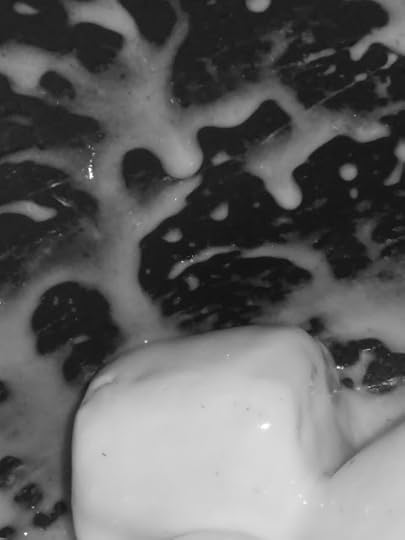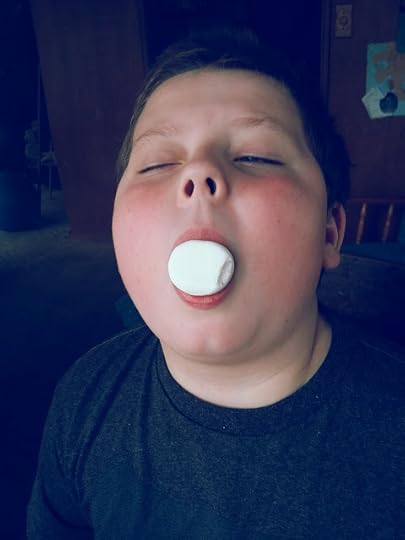Briane Pagel's Blog: Thinking The Lions, page 10
May 4, 2016
Don't fret: either way Wall Street's gonna be fine and you're going to continue to worry about everything.
 So it looks like Trump vs. Hillary, and right now Real Clear Politics has the "spread" at 6.2 because politics is just a game right? It is, and like every other major sporting event, the presidential election goes on too long and has zero impact on real life because every president is just like every other president and the middle class continues to get squeezed.
So it looks like Trump vs. Hillary, and right now Real Clear Politics has the "spread" at 6.2 because politics is just a game right? It is, and like every other major sporting event, the presidential election goes on too long and has zero impact on real life because every president is just like every other president and the middle class continues to get squeezed.If you think campaign contributions foreordain policies, as I do -- and I am coming around to rethinking my political contributions stance -- Hillary is bad news. While her top contributor right now is Emily's List, a PAC that helps elect women politicians, Hillary's other top 10 are a rogue's gallery of Too Big To Fail Banks: Citigroup, JPMorganChase, Goldman Sachs and Morgan Stanley, among them.Those banks, with DLA Piper, a multinational law firm, are the top 5 after Emily's List.
DLA Piper's average profit per equity partner last year was $1,400,000. Per partner. Just thought I'd mention that before going on to the list of banks bailed out and subsequently contributing to Hillary.
Morgan Stanley got $10,000,000,000 in the fall of 2008, in the form of a government stock purchase. The government eventually received that money back, in June 2009, and it seems the deal will net the government about $1,100,000,000 in profits (through dividends paid; dividends are paid when a company is profitable and shares those profits with stockholders.) JPMorgan got $25,000,000,000, paid it back and made the government $1,753,000,000.
Government bailouts are good business, for government, a unique situation engineered under a Republican congress and a supposedly-liberal president. Government bailouts mostly happen to big businesses. Over the last five years, the government has loaned a total of $83,000,000,000 to small businesses. Of course, not only is that number less than the big banks got in six months in 2008-9, but most of it comes from smaller banks and lenders, not the government. Under SBA loans, banks make the loans and the government guarantees a percentage (usually 85%) of the loan if the business doesn't pay it back. The banks still have some risk so those loans are tough to get.
Meanwhile, over the past 24 years there have been 16 years of Democrat presidents and 8 of Republican, with Congress about roughly divided in control (although now solidly in Republican hands and likely to stay that way as Hillary monopolizes money meant to help elect state and congressional Dems).
In 1993 the median household income (1/2 of America earned more, 1/2 earned less) was $50,421. That climbed steadily to a high of $57,843 in 2000, where it stayed until roughly 2008, when it began dropping each year until 2013. It rose slightly in 2014, and the last measure was that it was $53,657.
While Hillary and the Dems will no doubt take credit for the 1993-2000 rise, the Democrats were in charge of Congress for much of the Bush era and income was stagnant for that period.
Not only that, but because the cost of living rose faster than incomes, an income of $57,000 in 2000 was equal to an income of $46,000 in 1992: A person whose income actually tracked the national averages, going from $50,000 a year in 1992 to $57,000 a year in 2000, would be worse off despite earning $7000 more. ($50k to $57k is, after all, a net increase of only 3.5% over 7 years.)
AND, in 1994, under Clinton 1.0, the government loosened restrictions and regulations over banks and allowed Fannie Mae to begin buying "subprime" mortgages. Clinton and the GOP congress then eliminated capital gains taxes on sales of expensive homes ($250,000-$500,000), and allowed the process of securitization of mortgage loans (remember that? It was once talked about and now has been banished to the recesses of the public consciousness, but is happening with auto loans right now.)
In 1998 the Clinton-led government bailed out "Long Term Capital Management", a hedge fund (hedge funds are ripoffs, according to Business Insider) and Clinton's administration helped broker a bailout by private banks including many that would just 9 years later get their own bailouts. Also in 1999 Fannie Mae helped Countrywide (remember them?) get a deal to make it the biggest lender in the history of America, with a system that encouraged Countrywide and other lenders to pay no attention to whether a borrower could pay a loan; and the Clinton Adminstration helped pass "Gramm-Leach-Bliley" - note that government largesse bills never have catchy names like "PATRIOT act"-- a bill that allowed banks to become 'too big to fail.'
Got all that? Clinton 1.0 set the stage for the crash, allowing banks to become overleveraged, deregulating mortgage lending, and normalizing government bailouts. Mortgage fraud began increasing in 1997, 5 years into Clinton 1.0.
Hillary's plans are short on specifics. She wants to offer a $2,500 tax cut to help students afford college. The average cost of a semester at a state college is $4700 for in-state students. The average cost of college on a whole has almost doubled, from $9700 in 1992 to $17000 in 2013, the last year averages are available. Her plans for student loans would save, on average, $200 per year -- less than a dollar a day-- for most lenders. She wants to invest $350,000,000 to help students attend college in their home state without borrowing to pay tuition, but this plan requires families to "do their part" to contribute. Remember, 'kids' who attend college are 'adults' everywhere else in the world, and can marry, join the army, vote, and own property. So Hillary will lower costs for college, for the 'kids' by expecting the parents to pay more.
So we can all enjoy another 8 years of stagnant wages, higher costs of living, irrational student, auto, and housing loan policies, difficult credit, lowered support for social services and infrastructure, and eventually another economic collapse.
The good news?
For me personally, I make my living defending people against debt collectors, big banks, and corporations. When those companies act illegally, people get to pay me rather than them. Over the past 14 years 100% of my income has been earned by money which was required or allowed to be paid to me because companies violated the law. So long as they don't entirely legislate me out of existence, as there are sporadic attempts to do, consumer protection attorneys will survive, if not thrive. (It's hard to thrive when your clients can't make enough to pay their own expenses, and you have to fight for years to get companies to pay up, but it's worth doing anyway.)
For the country? The last time we had a series of sustained booms and busts it led to the Great Depression and a change of attitudes that helped move us towards a more fair country that actually cared about people, at least for a little while. Before that, demagogues and the rich who demonstrated callous indifference to the poor were beheaded.
So we can dream.
Published on May 04, 2016 05:32
May 2, 2016
The Verona (WI) library is pretty awesome
On rainy days, we go to new libraries.
This week it was to Verona, one town over. Did you know that if you type "library" into Google maps it'll find you nearby libraries? I love living in the future.
This is the great hall (that's how I think of it.)

That picture above was taken while I was standing right in the main angle of the giant window below. You can see this window from a nearby park, which is how we learned years ago that Verona had a great library. This was the first time we've been to it, though.

This looked like it was a tree with some toy dinosaursbut it turns out that the "Gingko Biloba" isthe oldest tree in the world.
Hence the dinosaurs.
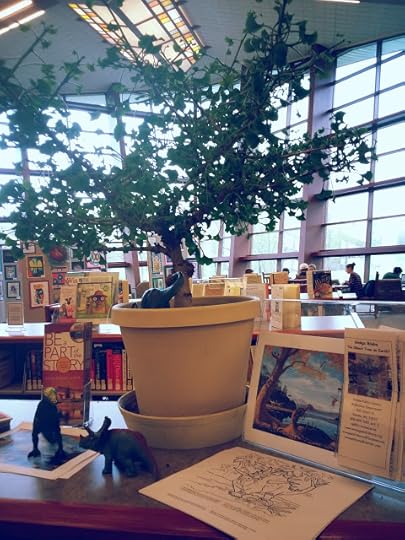
I once had an idea for a "toy library." You could join -- like how video rental stores used to be -- and then check out toys, like board games or puzzles or action figures or something, then bring them back when you were bored with them and get a new toy.
Real libraries feature a lot more toys these days. That's good. Libraries are becoming more community centers than book repositories.
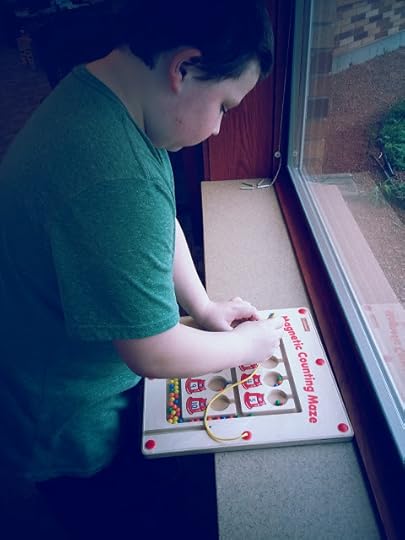
Mr F does not like libraries.He was pretty good at this one despite this entire day being notreally his cup of tea.
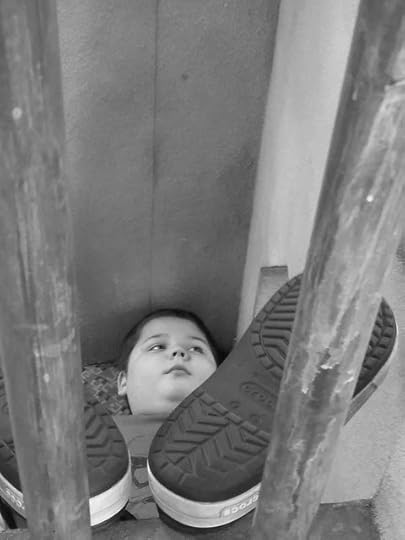
He mumbles and sings to himself, but he can get kind of loud sometimes. There was a little girl who came into the castle and was sitting in one of the alcoves trying to read, but she kept lookingworriedly at Mr F.
I finally said "Is he bothering you?"
She said "He's kind of loud."
I said "He doesn't mean to be, but would it help if we left the castle while you read?"
She nodded.
We went and hung out by Mr Bunches. About twenty minutes later she came and found us and said that we could go back to the castle and thanked us.
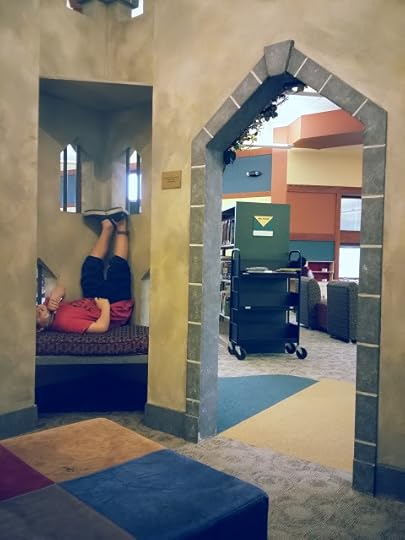
I feel very strongly that people should not mind when kids like Mr F get a bit loud or upset in public.
I feel equally strongly that we should not deliberately upset people, and keep in mind that having special needs doesn't mean you can do whatever you want.
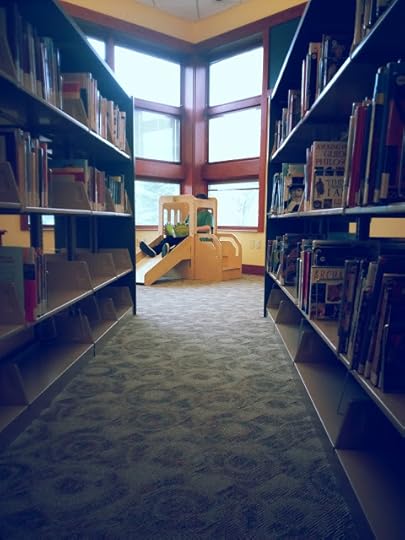
Both Mr Bunches and Mr F sat in that slide for a while. I think the slight enclosure made them feel safer because it's a big library and there were lots of people there.
Whenever a little kid came by I made the boys vacate the slide for a while. (See above.)
They had these cool (possibly papier-mache) sculptures all over the kids' section.When I was little, the kids section of the library was just a little sort of cordoned-off areawhere there were kids books. These new libraries are incredible.
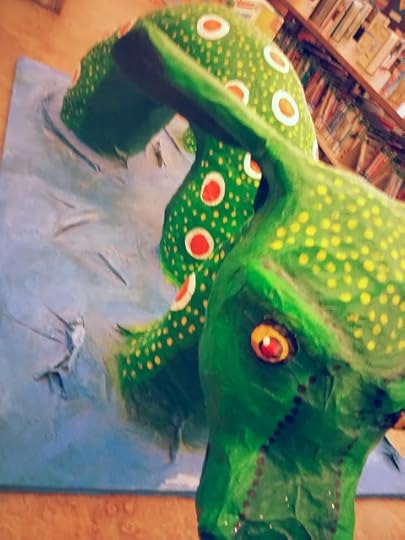

They had just a treasure trove of books for Mr Bunches. Mr Bunches likes ABC books, and books about concepts (colors, numbers, etc.) They had those in spades. And they set them out by subject, which is good. We went to one library once where they had kids' books sorted by author. Who knows the author of an ABC book?
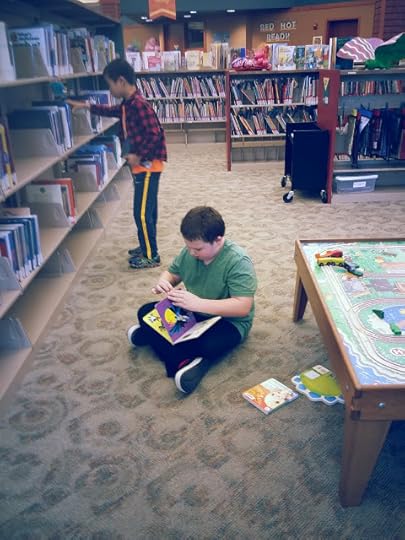
There was a sort of stuffed dragon in the castle and Mr Bunches was playing knight with it for a while.
It was kind of neat: even though everyone was being sort of library-hushed, there was enough background chatter and kids and stuff that you didn't feel like you were in church. You could be quiet but didn't have to whisper. Libraries are fun again!
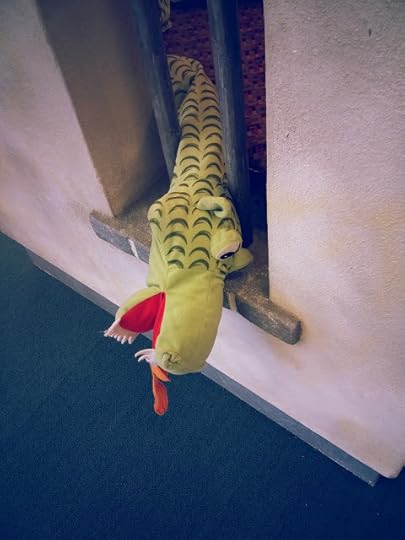
Book haul!
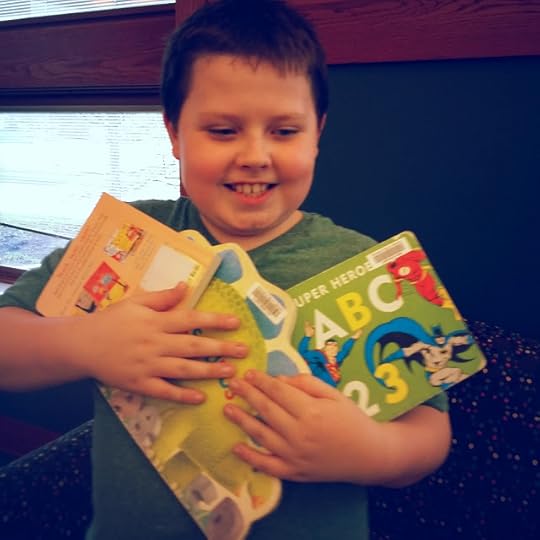
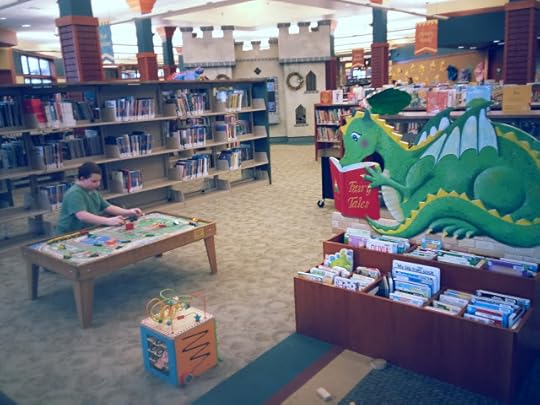
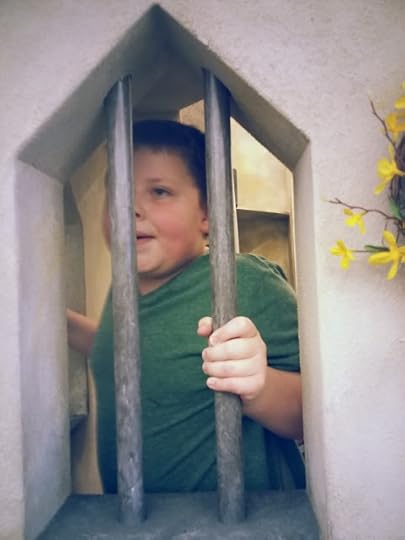
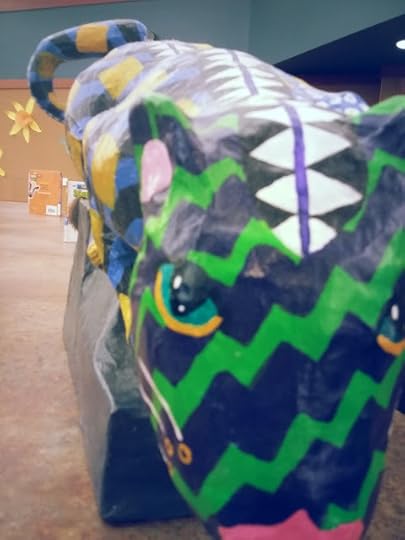
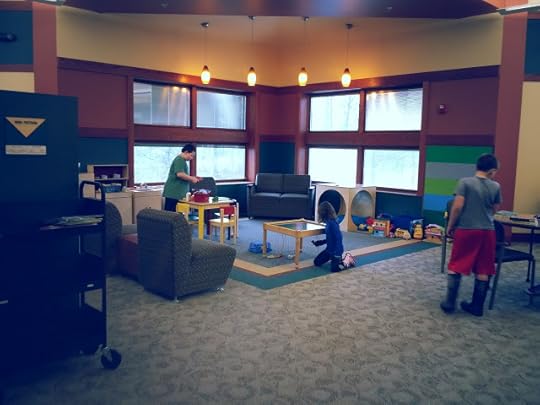
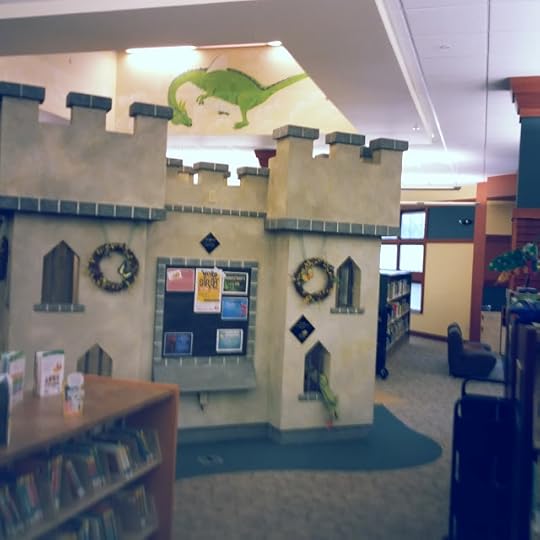
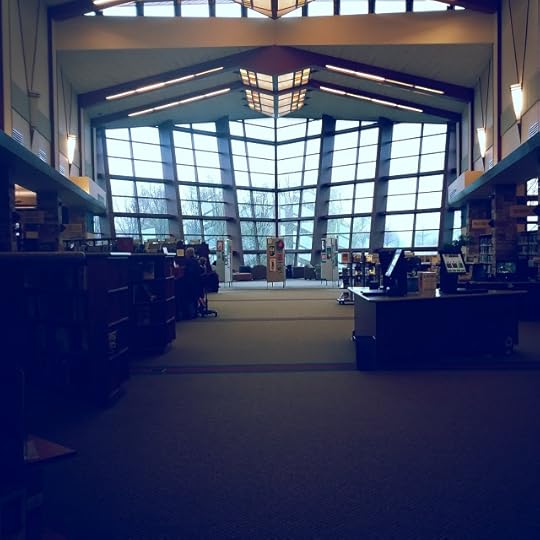
I want to live there. I want to be like those kids in the Basil E Frankweiler book and hide out in ("how do you hide out in something?") the library.
This week it was to Verona, one town over. Did you know that if you type "library" into Google maps it'll find you nearby libraries? I love living in the future.
This is the great hall (that's how I think of it.)

That picture above was taken while I was standing right in the main angle of the giant window below. You can see this window from a nearby park, which is how we learned years ago that Verona had a great library. This was the first time we've been to it, though.

This looked like it was a tree with some toy dinosaursbut it turns out that the "Gingko Biloba" isthe oldest tree in the world.
Hence the dinosaurs.

I once had an idea for a "toy library." You could join -- like how video rental stores used to be -- and then check out toys, like board games or puzzles or action figures or something, then bring them back when you were bored with them and get a new toy.
Real libraries feature a lot more toys these days. That's good. Libraries are becoming more community centers than book repositories.

Mr F does not like libraries.He was pretty good at this one despite this entire day being notreally his cup of tea.

He mumbles and sings to himself, but he can get kind of loud sometimes. There was a little girl who came into the castle and was sitting in one of the alcoves trying to read, but she kept lookingworriedly at Mr F.
I finally said "Is he bothering you?"
She said "He's kind of loud."
I said "He doesn't mean to be, but would it help if we left the castle while you read?"
She nodded.
We went and hung out by Mr Bunches. About twenty minutes later she came and found us and said that we could go back to the castle and thanked us.

I feel very strongly that people should not mind when kids like Mr F get a bit loud or upset in public.
I feel equally strongly that we should not deliberately upset people, and keep in mind that having special needs doesn't mean you can do whatever you want.

Both Mr Bunches and Mr F sat in that slide for a while. I think the slight enclosure made them feel safer because it's a big library and there were lots of people there.
Whenever a little kid came by I made the boys vacate the slide for a while. (See above.)
They had these cool (possibly papier-mache) sculptures all over the kids' section.When I was little, the kids section of the library was just a little sort of cordoned-off areawhere there were kids books. These new libraries are incredible.


They had just a treasure trove of books for Mr Bunches. Mr Bunches likes ABC books, and books about concepts (colors, numbers, etc.) They had those in spades. And they set them out by subject, which is good. We went to one library once where they had kids' books sorted by author. Who knows the author of an ABC book?

There was a sort of stuffed dragon in the castle and Mr Bunches was playing knight with it for a while.
It was kind of neat: even though everyone was being sort of library-hushed, there was enough background chatter and kids and stuff that you didn't feel like you were in church. You could be quiet but didn't have to whisper. Libraries are fun again!

Book haul!







I want to live there. I want to be like those kids in the Basil E Frankweiler book and hide out in ("how do you hide out in something?") the library.
Published on May 02, 2016 19:22
April 30, 2016
Book 32: After a big April I'm only 1 off the pace, but I'm 1/3 of the way through one book, 2/3 of the way through another book, and 2/3 of the way through an audiobook that time ran out on so I had to check out the hard copy.
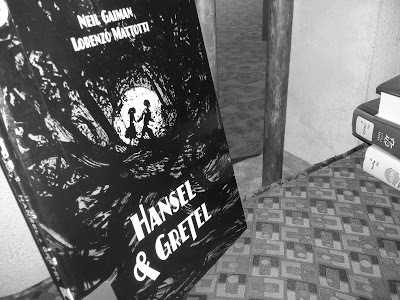 Mr F doesn't like libraries, but Mr Bunches and I do, so when we want to go to a library, we usually try to do something for Mr F first, like go to a park or go swimming or something. Today we didn't really have that chance. It was raining, so we couldn't go outside and play, and we all went swimming last night, so as a warmup for Mr F to go to the library, we went to "Rocket McDonald's," which is a McDonald's that has a playland with a big spiral staircase thing that for some reason we decided looked like a rocket. (It doesn't.)
Mr F doesn't like libraries, but Mr Bunches and I do, so when we want to go to a library, we usually try to do something for Mr F first, like go to a park or go swimming or something. Today we didn't really have that chance. It was raining, so we couldn't go outside and play, and we all went swimming last night, so as a warmup for Mr F to go to the library, we went to "Rocket McDonald's," which is a McDonald's that has a playland with a big spiral staircase thing that for some reason we decided looked like a rocket. (It doesn't.)Mr F wasn't crazy about that either: he seemed spooked by the rocket-stairs, going to them repeatedly and then climbing up one before skittering away. He spent much of the time hanging out by his french fries or sitting in the high chair.
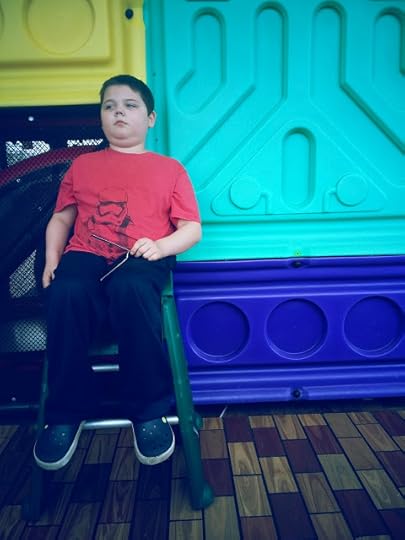
So when we went to the Verona library -- the next town over, and a library I've wanted to go to for a long time because from outside it looked really spectacular -- I decided not to follow my usual routine with Mr F, which is to pick out a book and make him read it with me. Since Mr Bunches plays with all the library toys and then reads all his books before we go, Mr F is usually stuck at the library for a pretty long time, so we walk around and look at the books and check out the movies and the bubblers and the art and etc., and then we sit and read a book together, and then we just hang out until Mr Bunches is done.
Today, like I said, I didn't want to make him read, since he already was out of sorts. So I decided I'd read to him, and was looking around for a book when I came across Book 32.
What really attracted my attention to it was Neil Gaiman's name being on it. I'm not sure what I think about Neil Gaiman. He wrote one of my all-time favorite books (American Gods) but I thought The Ocean At The End Of The Lane was only so-so, and I gave up on a collection of his short stories. I liked Coraline as a movie. But I've also gotten the feeling that Neil Gaiman is getting all kinds of credit just for being Neil Gaiman, the way Stephen King can just write anything and it's going to sell a billion copies.
So I wasn't entirely sure that Neil Gaiman writing a kids' story would work. It was entirely possible that this was just a way to boost sales for some book, pasting Neil Gaiman's name on it, or that it wasn't one of his best. But I decided to give it a shot.
The way we did it was Mr F would sit somewhere -- the castle, a chair, the slide -- and I'd sit by him and read it quietly to him. If it got too crowded around us we'd move to a quieter spot and continue. It's hard to tell if Mr F is paying attention or not, but I figure at least hearing the reading is worth something.
The book was actually really very good -- and surprisingly so, I think. Everyone knows the story of Hansel & Gretel: two kids led into the woods by their dad who stumble across a witch's cottage and end up shoving her into the oven. What Gaiman did here though was flesh out the story (to be fair, I don't know how much of the original Brothers Grimm story there was, so maybe he just rewrote it?) to give some dimension to the characters, and add some emotional complexity. In the end, he wrote something that's more than a book for children, and is actually quite chilling if you think about the story.
The story here has the mom convincing the dad to take the kids into the woods because there's a war, and money and food are scarce, and they won't all survive -- so two can die so that two can live. Hansel overhears them talking and the next day he's ready, with white stones in his pocket to trace their way back. So the first time it doesn't work, but the second time Hansel isn't ready, so he has to leave bread crumbs, and of course they get eaten, so they wind up at the cottage, where the witch is pretty gruesome, referring to Hansel as meat and trapping him in a cage.
What really makes the story work better than just a fairy tale is both the extra time dumping them in the woods, and the little details that show Gaiman at his eerie best. The first time they go out, Hansel knows what's up but Gretel doesn't, and Gretel (the elder) seems to not want to believe their dad just dumped them in the woods. But the second time it happens, they both know what's going on. That leads to this:

Gretel's getting it was a really creepy moment, as was the witch's house, with Hansel being fattened up in the cage. To keep the witch (who is almost blind) from realizing how fat he's getting, Hansel takes an old bone that was lying in the cage, and each day when the witch comes in to feed him and says to poke a finger through the bars so she can see how fat he's getting, Hansel pokes the bone through, tricking her into delaying until she loses patience and has Gretel build a fire in the stove to cook her brother anyway. When Gretel goes to get her brother out, having burnt the witch, she wonders why Hansel clings to the bone and won't let it go, and anybody reading it should get a lump in their throat at that.
After I read it, I was thinking about how for kids it's a pretty scary story: what's scarier than being abandoned by your father in the woods, and then taken in by a witch? The contrast between the woodsman's sparse larder and the witch's gingerbread house only makes the comparison more stark: why wouldn't the kids think the witch was nice? But, it turns out, no adult is to be trusted, from a kid's perspective: parents will dump you in the woods and strangers will cook you and eat you.
Reading it as a parent, though, I got a whole different perspective on it. The mom's choice is horrible (I'll have more to say on that below) and the dad's decision to go along with it just as bad, but how bad would it be if you couldn't provide for your kids and knew they would end up starving? I think any parent would say the kids should get the food and would do everything they could to make sure the kids live, but what that leads to in this case is (unless the war in the story ended real soon) two kids with dead parents living in a wartorn country stricken by famine.
I think there's little worse, from a parent's perspective, than letting a kid down, or feeling helpless in the face of adversity. I feel terrible everytime we have to limit Mr Bunches' toy budget; but we're not made of money and he'd bankrupt us if he could, so the lesser evil is to deny him the many requests for toys he makes each day. I felt worse the night Sweetie and I sat up all night in a dark hospital waiting room while Mr F had brain surgery. I remember being exhausted and wanting to just lie down for a minute or two, around 4 a.m., but every time I thought about that I would picture Mr F in the operating room. I couldn't do anything for him; I'm not a brain surgeon and there wasn't anybody to sue. So I did the one thing I could do: I stayed awake, trying in some way to at least be in the same boat with him in whatever way I could: while he was going through whatever he was going through, I was forcing myself to have some tough times.
It's that feeling, in good parents, that makes kids love us and makes us a good parent: the absolute certitude that we would take any amount of harm or danger or trouble if it would spare kids from some problem. But what about when there is no good option, only bad and worse? I was walking around looking out the windows with Mr F thinking of what the parents could do, how they might have tried to get to a different country, or worked to catch more animals or something. But each day they'd realize their kids were hungrier and hungrier and would simply have to hope that things get better.
It's that feeling of helplessness I think would be the worst. The hardest times for me in my life are when things are out of my hands: pacing around the hospital waiting room, or when a jury has gone to deliberate. You simply sit and think about what you could have done, how things might have been even a bit better. I imagine that's the desperation Hansel & Gretel's parents felt -- but the choice they made makes them, to me, every bit as bad as the witch. She was going to eat them to stay alive, but the woodsman and his wife sacrificed the kids so they could live. You could argue that the witch was doing what witches do: is it evil to give in to your nature? But the parents? Parents don't kill their kids so they can live longer.
That's why the ending of the book was hard for me to take. Hansel & Gretel escape, of course, and they find their way back to their parents' house, where their dad is waiting. They're excited to see him and they've brought all sorts of diamonds and gold from the witch's stash, and as their dad hugs them they ask where their mom is. She's died, and Gaiman suggests that maybe the Mom died because she missed her kids.
I suppose it might be natural for kids to love their parents. All kids want to think their parents are loving and great, and will go to extremes to justify behavior that is bad, or worse. Kids make excuses for terrible parents all the time. (I see some of it in my job.) But at the end of the book, the dad has paid no price whatsoever, really: he dumped his kids in the woods, they were captured and nearly eaten by a witch, and they bring him back riches and they all lived happily ever after and never wanted for anything again.
WHAT KIND OF MESSAGE IS THAT? I know this was a kid's book, but it was a kid's book where the author felt it was okay to refer to kids as meat, and then it just cheaped out in the end, with a sort of "oh well your dad loved you he tried his best," which, after the 99% of the book that was really far better than a retelling of a fairytale could be expected to be, was a colossal letdown. I would have had Hansel and Gretel make their way to another town, and live off their riches. Or stay in the witches' gingerbread house and help travelers who are lost, until they were old enough to go back to civilization. Something like that would've been a more consistent story, I think: Hansel & Gretel could only trust each other, after the entire world, so far as they knew, treated them as disposable. Why not tell kids hey if people treat you bad you just leave 'em behind? Gaiman ends up with a "they all lived happily ever after even the dad who, after all, only dumped his kids in the woods twice so that he could live while they didn't, and then never even went searching for them," and it feels like a cop-out, as if he realized the book was due in a half-hour and had to get something on paper, or he was worried about pro-dad groups pestering him. (Pro-dad groups -- mad dads -- are the worst. They are horrible people.)
I wasn't going to count the book originally but it actually made me think more than some of the other books I've read, so I threw it on the list.
(PS the artwork in the book is phenomenal and guaranteed to spook kids.)
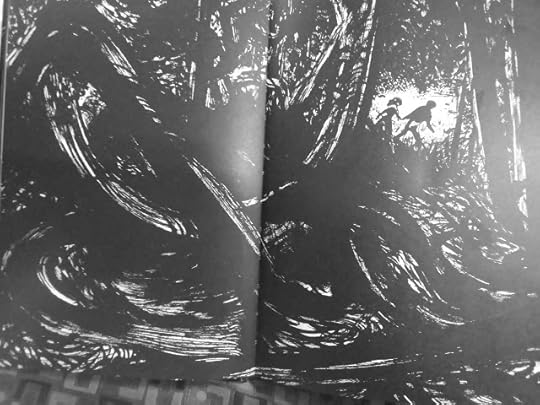
Published on April 30, 2016 18:56
April 29, 2016
15,842 New Words: I probably should have looked up 'Carpathian' too.
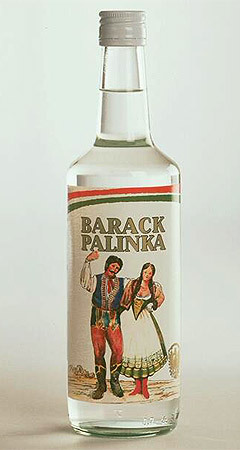 “I’m only going to say this once, so don’t fly off the handle,” she said. “Flax Hill is home to me because I loved Leonard Fletcher. Not the other way around.”“Right, but I’m not trying to— Arturo’s not— the air tastes of palinka, you see,” I said, idiotically. “Here in Flax Hill, I mean.”Boy, Snow, Bird: A Novel, Helen Oyeyemi.Palinka is a traditional fruit brandy invented in the Middle Ages, coming from the Carpathian region, which so far as I can tell is Hungary and parts of Austria.I mean I don’t know if this word will be helpful in my everyday life but I like it.
“I’m only going to say this once, so don’t fly off the handle,” she said. “Flax Hill is home to me because I loved Leonard Fletcher. Not the other way around.”“Right, but I’m not trying to— Arturo’s not— the air tastes of palinka, you see,” I said, idiotically. “Here in Flax Hill, I mean.”Boy, Snow, Bird: A Novel, Helen Oyeyemi.Palinka is a traditional fruit brandy invented in the Middle Ages, coming from the Carpathian region, which so far as I can tell is Hungary and parts of Austria.I mean I don’t know if this word will be helpful in my everyday life but I like it.
Published on April 29, 2016 14:16
April 28, 2016
Book 31: Even though I loved this book very much I had to keep looking up the name to remember how it went each time I talked about the book.
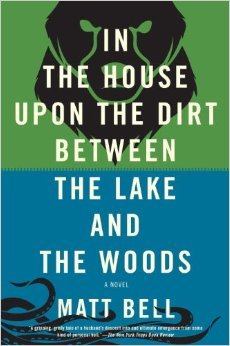 It's hard to know what to say about In The House etc etc. The book is a nightmare, but in a good way, if that's possible.
It's hard to know what to say about In The House etc etc. The book is a nightmare, but in a good way, if that's possible.There are a few books I've read that I think are not like any other book, or like each other. A Short Sharp Shock was one. 100 Apocalypses and Other Apocalypses was another. Foucault's Pendulum, and The Rathbones were a couple of them. When you happen on one of these books, it's like turning over a rock or standing on your head and looking at your backyard or driving through a thunderstorm or maybe all three of those things at once: books like this reveal something, look at things differently, attack everything around you violently even as you sit, sheltered, away from the maelstrom.
When I was a kid, when I was like 14, I had a nightmare. I remember it now, more than three decades later. In the nightmare, I was running down a snowy hill, through pine trees. The snow wasn't deep; it was only up to my ankles, and served more as a slight impediment and a way of blurring out the scene. I kept running and running . It wasn't one of those dreams where you can't move or you never get anyway. Quite the opposite: I ran fast, and a long way, looking over my shoulder all the time to try to see whoever was chasing me. At one point, though, just as I turned back to look where I was heading, a man in a ski mask leaped out from behind a tree and stabbed me in the side.
I woke up, instantly. I didn't feel scared. I wasn't breathing heavily, or sweating, and hadn't screamed. I was just, instantly, and completely, awake. I went down the hall to the bathroom to get a drink of water, and turned on the light. It was only then that I realized I was holding my hand over my side, right where I'd been stabbed, in the dream. I kept looking at my hand in the mirror, telling myself it was okay to take my hand off, that it had only been a dream, but I didn't, for a long time, and then when I finally did move my hand, and saw only unbroken skin, I let out a huge breath: I'd been holding my breath as I wondered what I would do.
That dream remains crystal clear to me even now, an unreal experience that I can recall every detail of, right down to exactly where I held my hand.
In the way a dream like that can stick with you and taunt you with what your subconscious is thinking about, in the all the subtle ways a completely fictional experience can shape your perceptions of yourself and your world: that is how In The House... affected me.
It's not an easy book to read, In The House... and not a comforting one. But I'm glad I read it. I don't know that I'd ever read it again; in that way the book is like my visit to the Holocaust Museum: an experience I feel like I should have, but not one I'd want to repeat.
All that said, it is an excellent excellent book. It is a book that I think deserves to be far more widely known than it is already, because people should know that storytelling this powerful and unsettling exists. It's a book that opens up a new possible.
The plot of the book is sort of secondary, and doesn't do the book justice. In a nutshell, a man and a woman -- they're never named, although hints about the woman's name are given and made me think maybe I was right about this being, in part, a retelling of a bible story -- move to a wilderness area, between a lake and the woods. They plan to raise a family and live there alone, but events overtake them and the resultant story is both fantastic and terrible in its unfolding.
That mundane description, though, doesn't explain the poetry of the book, both in the language used (Matt Bell is a wonderful writer) and in the way the world acts around the man and the woman, and the way they act. The woman can sing things into existence, while the man, cruder, must build and hunt and trap. Their efforts to have a family eventually tear into their relationshp, causing the woman to wreak havoc with reality, while the man has run-ins with a bear and a monster in the lake.
From there, the story gets ever more compelling and more extraordinarily irrational. It would spoil too much to say what happens, but stars fall from the sky, there is a phenomenal showdown between the man and the various beasts, a descent into almost-literal madness, and the creation of whole new worlds within other worlds. It's amazing.
It's also very, very dark. It's like the Brothers Grimm decided to retell all the scariest stories humanity has ever come up with, or like Edgar Allan Poe's fever dream. It was a book that I read only in short sittings; after 30 or 45 minutes I had to come up for air and do something else for a while.
It's not a book for everyone. It's a real challenge, reading it, but each page is more compelling than the last. The story just kept getting better and better, more and more astonishing, and each time I thought okay we're on our way back down now things just escalated even more to greater heights... or depths, I guess, as large parts of the story take place underground in the 'deep house' or even lower, below a giant staircase that descends so far into the earth that time actually stops meaning anything for a while... until the story comes to an ending rather abruptly, in a way that makes perfect sense.
I think it's very much worth trying to read it. If you get two or three pages into it, you'll either not want to stop or will give it up right away; it's that kind of a book. It's totally worth it, though. I don't think I'll ever forget the bear, and the lake monster, and the children... oh man, the children! If you thought kids in movies like Children of the Corn or Goodnight Mommy were freaky, wait until you get to the part in this book where there are hundreds, if not more, children of varying shapes and sizes keeping the man from entering the woods and attacking each other and singing, each, a single note of a song over and over. Images like that will stay with me for a long, long time. Maybe forever. I can sit here and remember the arc of the story, the lake battle, the descent and subsequent ascent through the deep house, and feel a sort of dread. It's not a bad feeling in a sense: reading books like this is the modern equivalent of a Grimm story or Beowulf. It's a way of connecting to a more primal feeling within us, the subconscious that makes us who we are even when we don't understand why it is doing so. In digging up dreadful images and descrescendoes of terror, remorse, and guilt, a book like this reminds us of the darkness our lives could be, and makes you more grateful when you look up from it and realize you're not in a house made up of rooms each of which has one thing in it, and that one thing is a mockery of what life should be. No, you're in your own house where nature is not a terrifying set of half-dead animals rising from their graves, where children do not need to be sung into proper shapes. Reading this book is a journey into elemental forms of emotion that you surface from like a kid diving as far down as he can in a deep cold lake only to swim to the surface as quickly as he can to make sure the sun still exists and he can still breathe.
I don't think I'll ever forget it. I don't think it's the kind of book you can forget. I'm not sure I'd want to, though, even if I could.
Published on April 28, 2016 19:16
April 26, 2016
You can't tell how you are doing unless you first think of what you are trying to do.
Published on April 26, 2016 05:28
April 24, 2016
Rice Krispie Squares
Published on April 24, 2016 19:09
The latest thing wrecking your childhood is the new Cracker Jack bag without prizes.
 Just to be clear: nothing, after the fact, can ruin your childhood. Your childhood is in the past, immutable, altered only by your own perception of it.
Just to be clear: nothing, after the fact, can ruin your childhood. Your childhood is in the past, immutable, altered only by your own perception of it.The future, marching forward in ways you do not understand and do not want to take part in, does not wreck your childhood. But refusing to accept change can wreck your adulthood.
In other words, putting Cracker Jack in a bag and taking away the prizes, while also altering how the boy and his dog are drawn, is neither an "affront to baseball fans" nor an "affront to American innovation," contrary to what this writer bemoans in an article on Gizmodo.
What's remarkable about this article is how little thought or research went into it. The article complains about how the "prizes" in Cracker Jack are "now" QR codes to access apps on a phone. This began in 2013, 3 years before the writer had a conniption about it. That last article appeared in Huffington Post in 2013, and also noted that the company was introducing new forms of Cracker Jack, including one with unsafe levels of caffeine.
Sailor Jack and the dog were not icons for the first 20 years or so of Cracker Jack's existence; same with the toys. Both were innovations two decades in, so removing them entirely would be far more in keeping with the snack's history. They've not always been the consumer-friendly young lad and the rescue dog:
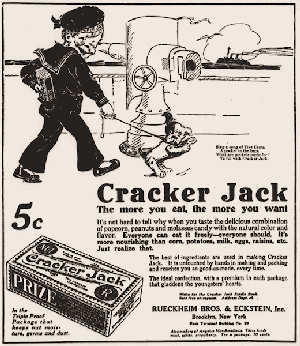 Pretty sure that's a troll strangling a puppy.
Pretty sure that's a troll strangling a puppy.Meanwhile, this article from 2009 says Cracker Jack was being sold in bags already back then, so the affront to American innovation and baseball is older than the Gizmodo article, which is an affront to journalism. (Even more of an affront? Gizmodo's writer probably just cut-n-pasted the news from sites like Today and CBS News. Hip'n'trendy writing notwithstanding, Gizmodo is just a news aggregator like HuffPo.)
As for "American" innovation, "Cracker Jack" was developed by a German who came to America, bought out his partner and brought his brother over from Germany. The brand's roots as a snack first presented at the World's Fair in 1896 is likely a lie. the inventor of the packaging lived in Ontario -- not a part of America! -- at the time of his death.
Changing a box, a prize, an ad, a logo is not an insult to America, or baseball. But pretending that 3-year-old news copied from another website is original thought is an insult to me.
Published on April 24, 2016 05:55
April 23, 2016
Book 30: The least amazing thing is that I knew before I went to look at a picture of Gary Gygax that he would be an old white guy with a beard.
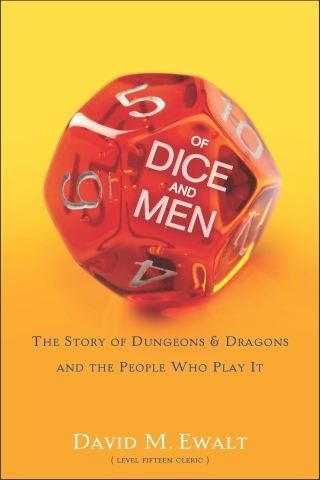 I never really got into Dungeons & Dragons all that much, and yet I think it's had a pretty big influence on my life.
I never really got into Dungeons & Dragons all that much, and yet I think it's had a pretty big influence on my life.The first time I remember playing D&D was probably in about 7th or 8th grade, so around 1982, only a few years after it had been invented. My friend Jim had gotten the game, and invited us all over to play it. We created some characters and explored a dungeon and that was about it. It was okay.
Over the next year or two, I probably played D&D a few more times; often enough that I owned some of the Advanced Dungeons & Dragons books and adventure packs, and understood how to play. I can recall sketching out dungeons on graph paper during study halls, marking places where there would be pits, and making tricky layouts like double-helixes that players would have to get through.
In reality, though -- a weird segue, for a D&D-based post-- I played the game far less than I thought about playing the game. I had a paper route when I was a kid, and used to sometimes spend the 30-45 minutes per day that I was on the route imagining new adventures for the game. It wasn't just D&D, either. We had a spy-based game, and a space game, too, that we played sporadically, so I would think about characters and missions in those games, too.
As time went on, I kept on adding to the adventures I was planning, in each of the games. I'd walk my paper route as the snow melted alongside the road, longing for the nicer days when I could ride my bike and get it done way faster, and think up more and more ideas. At one point, I had invented an entire continent with several cities and a war that was being fought, with one side having dragons and the other side having the ability to conjure really big giants -- giants the size of skyscrapers. I had several characters that would be leaders in the game and be important.
The thing was, we never actually played those adventures. I had some maps and ideas and plot points, and I'd sketch out what the characters or places look like on the backs of notebooks and folders, and think about them while I delivered papers or mowed the lawn, but actually playing the entire thing? I never got around to it. There are probably a lot of reasons for that, the chief among them being my friend Jim committing suicide when his parents were getting a divorce. That episode seems like it divides my childhood from my teen years; before that happened, me and the few friends I hung out with would get together and play games or organize bike races around the neighborhood and plan on going to the Great America amusement park as the reward for getting a "Student of the Quarter" award (perfect attendance and all As for a quarter.) After that, we started high school and focused on driver's licenses and dating and trying to drink beer.
D&D wasn't the first thing that ever made me imagine stories, of course. I'd read comic books since I was 6 or 7 (my uncles, not much older than me, collected them and shared them with us kids), and we used to play superheroes, climbing around on jungle gyms as we pretended we were flying or shooting lasers from our eyes. When Star Wars came out and action figures got small and cheap enough for kids to own a lot of them we would play that, too. (I think the advent of action figures is an unheralded moment in how kids play, because prior to that what we had were 7 1/2" or larger dolls, Evel Knievel and GI Joe and poseable superheroes or Star Trek figures, but they were expensive and you never had too many of them.)
What D&D did more, I think now, looking back, is encourage me not just to re-create scenes and build on them slightly, as we did when we'd use my dresser as the Death Star, but to invent something all brand new (or mostly brand new.)
That's one of the theses of the book Of Dice & Men: that D&D is more than a game, it's a creative effort that draws people into it because the adventures are ones they make up themselves, for the most part.
The early 80s was a sort of birth of adventure-creating for kids around my age. Not only did we have D&D (which only vaguely was associated with satanism around our city, so while it was sort of frowned on we didn't have parents trying to forbid us from playing it) but Choose Your Own Adventure books came out around that time, too, and home videogame consoles were coming out, featuring games like Adventure! that didn't follow the usual boardgame rules of rolling dice and trying to collect things. We played a lot of Risk and, later, Axis and Allies, wargames that let us plan strategies and try out different things. It seems to me that toys and games around that time took on a D&D-esque role of setting up a framework for people and letting them fill in the blanks on how to enjoy that thing.
The lasting effect of the game was, I think, that I like to tell stories. I once kept a list of all the stories and books I wanted to write, plots that are fleshed out enough in my head to constitute a book, if I took the time (if I had the time!) to sit down and write them out. Sometimes, when I'm sitting in traffic or taking a break from 4 hours of reading HUD regulatory letters (how I spent Tuesday afternoon this week), I think about what it might be like to be a writer, with your sole job being to get up in the morning and tell stories. I remember reading Piers Anthony's author's notes about how he writes, his shed in the back field with no heat where sometimes he has to wear fingerless gloves to go spend 8 hours typing, and think that's the life for me.
The reference to Piers Anthony shows that it wasn't just role-playing games that inspired me to start creating stories. Piers' author's notes gave an insight into his life that made writing seem like a thing people could do. Instead of books just being there, with some person's name on them, reading Anthony's notes about his life drove home the point that real people, people who might have once had paper routes and played football with friends, told stories that I'd go buy in book form at the mall. Reading those, and thinking about the adventures I could have set up on the D&D game, helped me start writing down the actual stories that I thought up.
That's, as I said, one of the main points of Of Dice & Men, a book I saw at the library on the 'Staff Picks' table. (Seeing books laid out all attractively and allowing me to find books that I might not otherwise is one of the big attractions of libraries and bookstores for me. I like to just walk around libraries and bookstores even when I don't have money on me to buy something.) The author talks mostly about his own love of D&D and what it meant for him, while frequently mentioning that one of the big lures of the game is the freedom it gives game players to make up their own rules and adventures within a loose framework.
The book's engaging enough; he's a good writer. But it feels like a magazine article or blog post expanded out to book length, at times: it's pretty light on history and detail of the game. It deals with the multiple lawsuits between the various people who created the game and who ran the company that published it, in about 1 paragraph. The same for the controversial era when D&D was being blamed for kids disappearing or killing themselves. (I don't think D&D had anything to do with my friend; I think he was just a depressed 8th grader with access to guns. It's amazing how people will blame anything -- D&D, heavy metal, videogames, "The Matrix" -- for their kids' problems, rather than undiagnosed/untreated mental health issues and the alarming and sad proliferation of guns in this country. Would my friend still be alive if his parents didn't own a shotgun that he had easy access to? Who knows? But you have a better chance of being found and rescued from a suicide by pills, hanging, or car-in-garage than by shotgun to the mouth. Guns and cigarettes are the only two products that I know of which, when used as intended, are fatal. Both should be illegal.)
There are only cursory interviews with some people in the gaming world, and glancing references to D&D in pop culture, with barely any examination of the differences in the 40 years' worth of D&D games, or how they might be treated differently in foreign countries. Mostly it's just one guy talking about what he knows about D&D and his efforts to learn a bit more about it. The history of how the game got created gets the most time -- about a chapter or two -- and is somewhat interesting, describing how the game grew out of a couple of guys deciding to take existing wargaming ideas and port them to fantasy adventures.
Here's a good example of an interesting fact that the author lets go entirely undeveloped. Near the end of the book, when he's quickly running through a couple of examples of D&D in pop culture today (The Big Bang Theory, mostly) he mentions that Vin Diesel wants to make a biopic of Gary Gygax, the guy credited with inventing D&D. The book itself mentions some interesting things about Gygax, like his time in Hollywood spending big and trying to turn D&D into what must have been imagined as a precursor to the Marvel empire now, and how the corporation, TSR, Inc., was mostly set up to enrich the owners of it at the expense of corporate management and employees -- both of which go undeveloped or unexamined, as well as what connection Vin Diesel could possibly have to D&D. I had to go read an article on The AV Club to find out Diesel claims that Frank Miller (creator of The Dark Knight Returns comics, among others) told Diesel that Gary Gygax wanted Diesel to tell his story. (Even on The AV Club, this story goes largely unreported.) The book is an example of the Slate-ification of reporting: an emphasis on personal experiences, mostly or completely unfleshed out by research or investigation or analysis.
As I said, it's not poorly written but it does feel like a lot of fluff and filler. As a book to get me thinking about a game that played a minor but still significant role in my life, it was okay. As a history or examination of D&D it was a bit of a letdown.
Published on April 23, 2016 05:42
I had this moment
where I was sitting up at 3:05 a.m. on the night the first snow of winter fell,
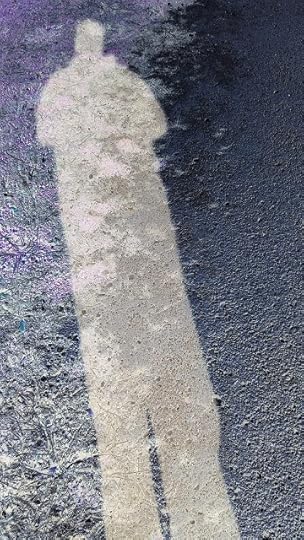
and I read a story
where the author said wishes don't matter,
about which I thought
no,
they do.
because I knew
you have to fight
for
wishes
wherever and whenever
they're attacked.

and I read a story
where the author said wishes don't matter,
about which I thought
no,
they do.
because I knew
you have to fight
for
wishes
wherever and whenever
they're attacked.
Published on April 23, 2016 02:09
Thinking The Lions
Do you think people invented "Almond Joy" and then thought "we could subtract the almonds and make it a completely different thing?" or did they come up with "Mounds" first and then someone had a brot
Do you think people invented "Almond Joy" and then thought "we could subtract the almonds and make it a completely different thing?" or did they come up with "Mounds" first and then someone had a brother-in-law in the almond business? And anyway did you ever notice that the almond creates a little mound and that "Mounds" are flat?
I'm probably overthinking this. ...more
I'm probably overthinking this. ...more
- Briane Pagel's profile
- 14 followers


